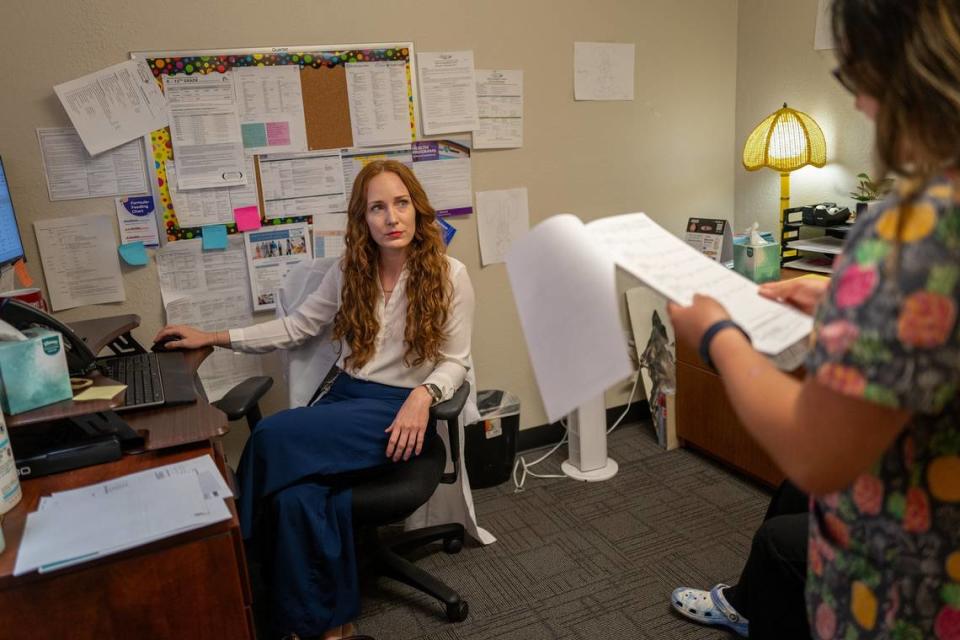More than just a medical clinic, Elica Health welcomes the world to Sacramento | Opinion
In 2021, when Svyatoslav and Svitlana Iotko arrived in Sacramento with their three children, they were refugees, fleeing from a rapidly deteriorating situation in Ukraine that would flare into a full-blown geopolitical war just a few months later.
Dnipro, their hometown, lies deep within the eastern European country but is surrounded on three sides by the Russo-Ukrainian war’s front lines. The city has been the target of numerous airstrikes since the war began, including a bombing in January of this year that killed 46, including six children, and left hundreds more homeless.
That war is still escalating, and so, too, is the number of Ukrainian refugees coming to Sacramento seeking a new life.
Opinion
Our region is now home to the highest number of Ukrainians per capita in the nation, and hosts the fourth-highest number of Ukrainian immigrants of any metropolitan U.S. city, behind only New York City, Chicago and Seattle, according to the Public Policy Institute of California.
When the Iotkos arrived in Sacramento, Svitlana said family and friends advised them to look into Elica Health Centers, a locally-based, federally-qualified health-care clinic with 10 locations across Sacramento and West Sacramento.
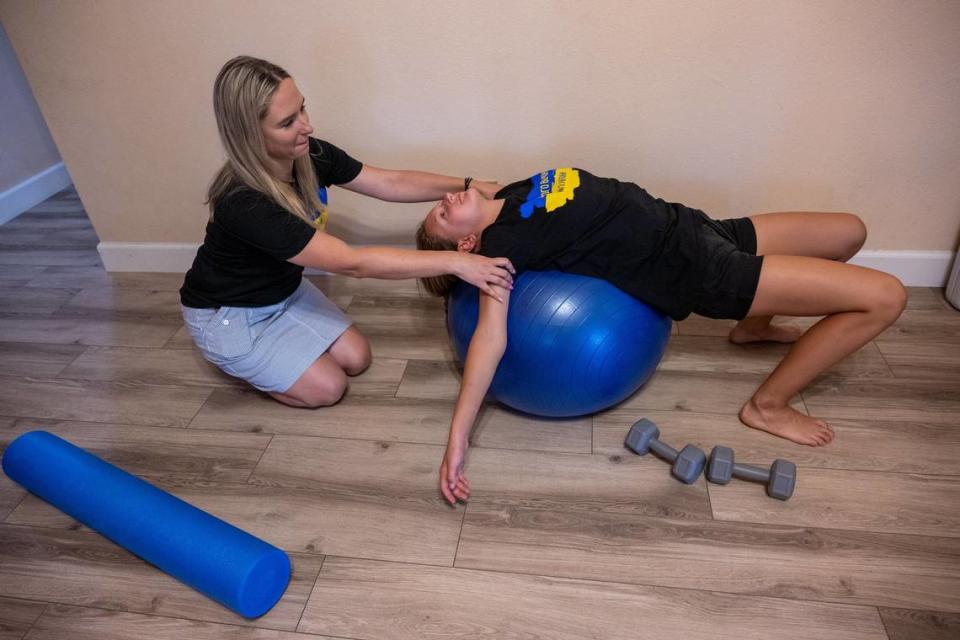
What they found was far more than just a medical clinic: Svitlana says Elica and its Immigrant Resource Center held their hands through the first two years of living in a totally new world.
“You don’t know the system, you don’t know what to do, and they guide you step by step,” Svitlana said. “All those people helped us as refugees, as new immigrants, to understand this system.”

Nearly 50 years of aid in Sacramento
Elica serves thousands of refugees and immigrants from every possible country, said Dr. Grace Tidwell, Elica’s chief medical officer. A diverse staff helps translate more than a dozen languages daily.
“We serve a really large community of folks from all over the world,” Tidwell said. “But the biggest thing we do is provide support they’re not able to get in any other setting. Health is related to so many more things than just a visit with your doctor.”
Elica not only provides comprehensive medical, dental, optometry, pediatric and behavioral health services, it helps link thousands of refugees, immigrants and low-income patients with social services across the region. The clinic has served more than 50,000 patients and had more than 200,000 patient interactions — nearly half of them in languages other than English.
Elica began as a community clinic in 1974, when current CEO Tatyana Bak emigrated from the Soviet Union and co-founded a clinic to serve Sacramento’s immigrant population with Dr. Alexander Yanushkovsky, a fellow USSR immigrant, on J Street in Downtown Sacramento. The clinic was eventually renamed Elica, a popular Romanian girl’s name meaning “noble.”
Elica has since been designated as a Federally Qualified Health Center, a federally funded nonprofit that serves medically underserved communities. From that clinic on J Street nearly 50 years ago, Elica now has 10 locations in addition to mobile clinics and a resource center.
“They can make an appointment with the doctor, ... explain to you what insurance plan to choose, they can explain your everything,” Svitlana said. “In my country, we could spend ... hours standing in the line just to see a doctor.”
At Elica’s resource center in North Highlands, any community member can find assistance.
“When I see my patients, I’m able to say ‘Hey, we speak your language,’” Tidwell said. “Elica is a place where everyone is welcome, and we aim to make everyone feel welcome.”
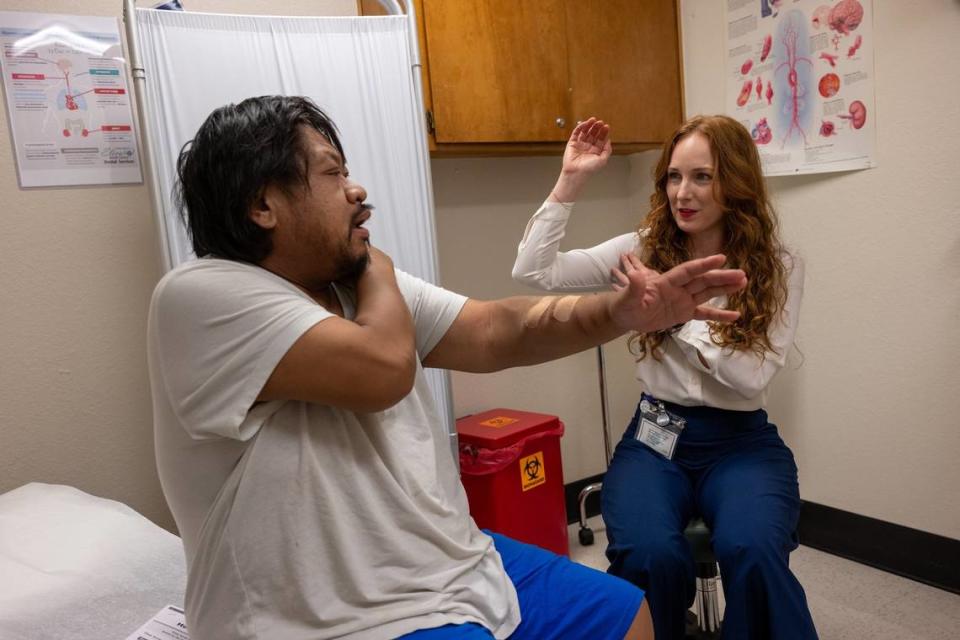
‘I know the pain … they’re lost’
In early August, the clinic plans to re-launch its resource center with an upgraded and physically expanded clothes closet and food pantry, built with financial assistance from HealthNet, a national insurance provider, said Zarlasht Larmal, Elica’s community support outreach specialist.
“Our community closet is just like a shop where you can come in and choose what you want and take it,” Larmal said. “There’s no restrictions.”
Larmal, who is from Afghanistan, sometimes helps translate for Afghan clients.
“I know the pain of coming here and I know their language,” she said. “They’re lost.”
“At the resource center, we’re trying our best to assist them with every need, from applying to medical care, to requesting interpreters or transportation. For those who have kids, we’re helping them translate so they can be enrolled in school. If there’s any paperwork that needs to be filled out, we’re here.”
Right now, Elica is looking for donations of clothes for men and boys, and especially men’s jeans for construction work; kitchen utensils and cookware to help refugees and immigrants set up their own homes are always needed, as are clothes hangers, personal care and hygiene items.
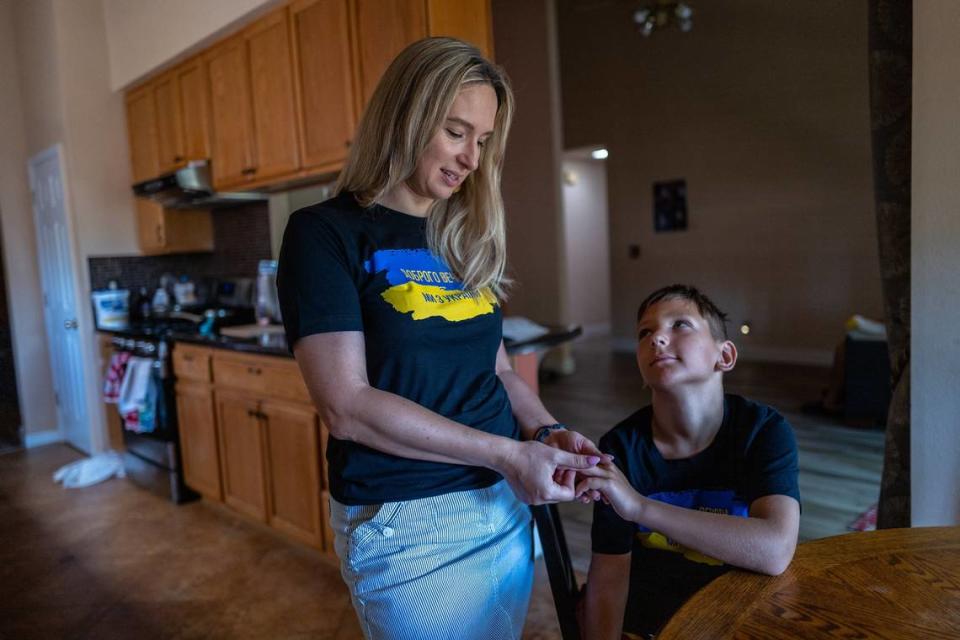
From immigrant to resident
Svitlana and her family no longer use Elica for medical care because they’re covered for health insurance under Svyatoslav’s new job. He now works at Highlands Community Charter Schools and she works at World Relief Sacramento as a part-time Community Navigator, helping new immigrants find their way in Sacramento and referring them to Elica whenever possible.
“(Elica is) immigrants-oriented,” Svitlana said. “They understand that people come from different cultures, and it’s important to be culturally sensitive. “
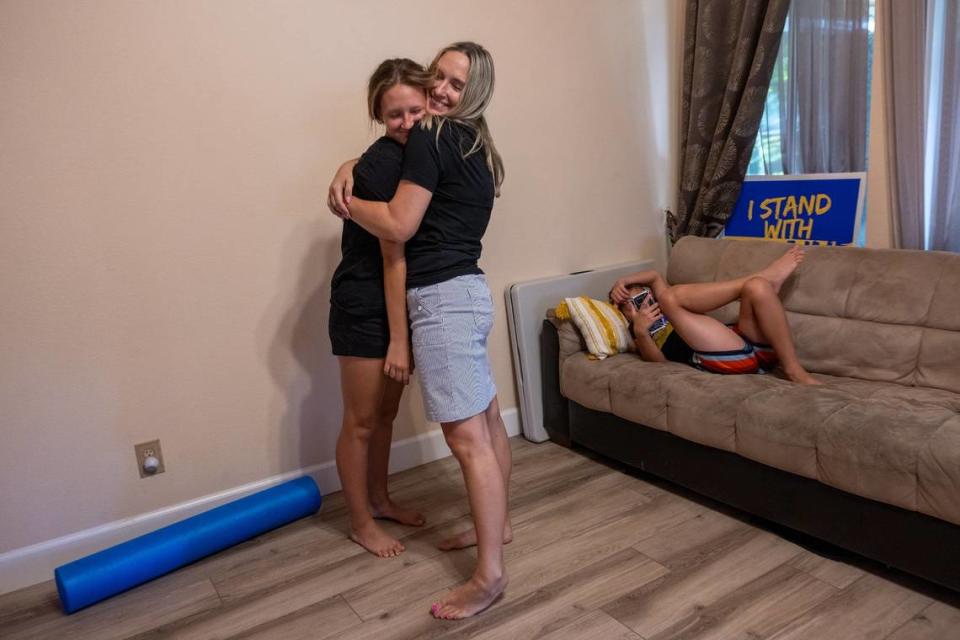
An internal survey recently done by Elica showed that more than 40% of Sacramento’s newest immigrants don’t know about the region’s food banks, and more than 30% don’t know where to find English classes. More than 70% of new immigrants surveyed didn’t know where or how to get information about support programs.
Elica, however under the radar it may be for most people living here, is exactly the kind of community outreach program Sacramento should be most proud of. Its website promotes Sacramento as “an attractive city for new immigrants and refugees” with “good social programs, green parks, clean streets and good schools.”
It’s sometimes easy to forget that there’s a lot to love here in Sacramento — and there are a lot of people who are grateful our community is a safe haven from the troubles of the wider world.
